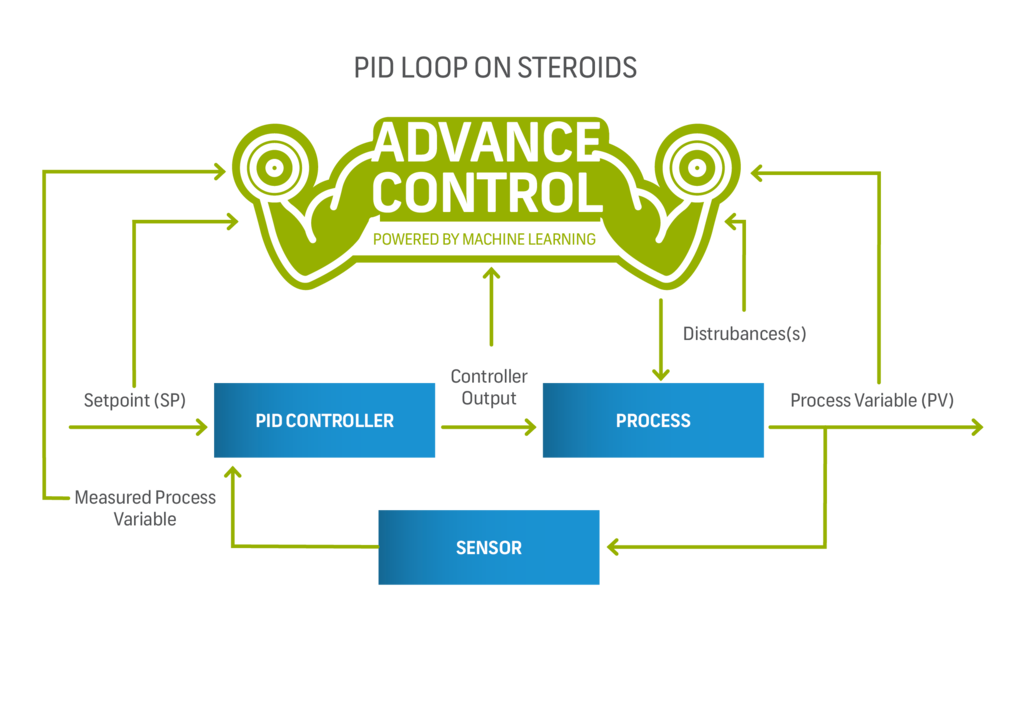
Advanced control powered by machine learning.
Will there come a day when utility end users can optimize their water/wastewater treatment process by out-of-the-box, user-friendly, machine-learning technology? To some, this may seem like a pie-in-the-sky concept but, as computing power continues to increase, so will the realm of possibilities.
PID loop optimization and tuning will be able to processes big data in minutes, backed by machine learning piping already built to detect and predict anomalies down to the equipment level before failures or unwarranted process variability overshoot.
Predictive analytics is the key to both monitoring and analyzing vast amounts of asset sensor data collected during water/wastewater treatment processes. By adapting to the development of “smart” infrastructures, water treatment facilities can embrace machine learning technologies that are web based and configure free without having to hire resource intensive, data science consultants or teams.
SCADA Operator Meet Your New Co-Pilot… Predictive Analytics
These technologies will act as a real-time, 24-7 virtual operator. Future-proofed, advanced control solutions will collect sensor data for analysis on premises, eliminating the need for dedicated hardware or software. This same co-pilot will learn, detect and classify patterns within your existing wastewater process; enabling operators/engineers to tune the PID loop for optimal results.
Based on the collected data, your co-pilot will create and deploy “smart agents,” or advanced machine-learning algorithms, that proactively monitor vital areas in the water treatment process for early stage failures, quality issues, safety concerns and environmental events. What was traditionally performed using teams of aging SMEs, process engineers, and data analysts has now been transformed into an extra set of eyes and ears that never complains, gets sick, or throws in towel when the going gets tuff.
Advance Control | The Technology of the Future Isn’t Smoke and Mirrors
Historical, present and future water process data, coupled with external or unforeseen variables, has never been truly used for PID loop optimization calculations until the advent of machine learning. Engineers have traditionally resorted to their own applied math, tuning controller inputs to the best of their ability in order to achieve optimal PID loop process calculations. Advance control incorporates both supervised and unsupervised learning capabilities, combining state-of-the-art machine earning technology with an operators input for validation of the results. Eliminating the need for time consuming, data scientist consensus, advance control will automatically set the conditions necessary to achieve a perfect PID loop.
Adopt an Agnostic Approach to Collecting, Processing and Analyzing Big Data
When it comes to implementing predictive analytic solutions for utilities, hybrid approaches such as Cloud/Fog/Edge, should be adopted according to how critically exposed your industrial control systems are. Utilities need to be able to select modular, transparent systems that can scale with various third-party devices and databases, from float sensors and pressure transducers, to existing work order management systems. These same solutions must also be able to handle millions of deployed algorithms in real-time with a hierarchy asset-framework that mimics the historian infrastructure already running. Advance control should perform bulk industrial data collection that is both scalable and flexible for existing infrastructures. Engineering war rooms should be developing solutions centered device and platform agnostic methodologies that are seamless in integration towards critical ICS, and able to handle current industrial protocols that transfers gained knowledge over a global network of sister water utilities and WWTP facilities. The global web of water treatment community’s benefit from this shared pool of resources and knowledge.
Now is the Time to Disrupt the Water Industry’s PdM & Process Control Paradigm
Advance control solutions will enable water municipalities and management to accelerate their data collection and advanced analytics capabilities beyond what was once considered costly and resource intensive. Ideal PID loop tuning, automatically performed in real-time, positions water treatment facilities to experience key competitive advantages across all areas of their organization. The value proposition behind this technology is its ability to
- Decrease susceptibility to EPA fines;
- Increase energy efficiency and improve public perception for conservation efforts;
- Accelerate ROI driven, labor and organizational efficiency; and
- Optimize chemical consumption directly leading to overhead savings.
This solution-enablement framework will be the first of its kind in the water industry, providing simple big data collection, predictive maintenance and process optimization. Advance control will shift how we approach PID loop optimization, handle predictive maintenance initiatives and help water treatment facilities maintain their competitive position in an ever-demanding industry.

Aldo Ferrante, president & CEO of ITG Technologies.
Aldo Ferrante is the president, CEO and founding owner of ITG Technologies. Overseeing business development and operations while leading a management team and engineering staff. With more than 30 years of experience in automation and information technology industries, he achieved great success in providing turn-key solutions to clients in the technology sector, including the manufacturing and municipality industries. Beyond software engineering and automation controls background, he has extensive knowledge in business management, finance, design, research, and development.
